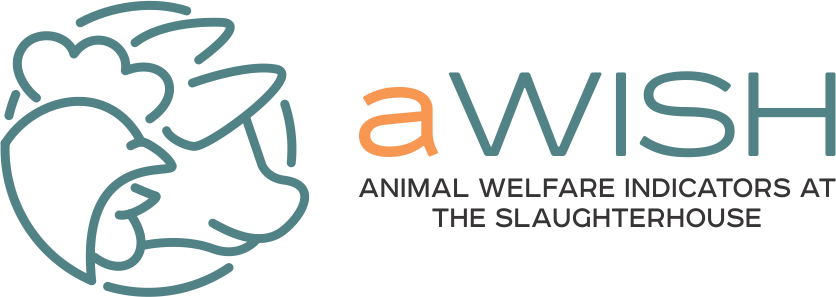Stay up to date
Enter your name and email below and hit the subscribe button in order to keep up with the latest project news
The objective of aWISH is to develop and offer a cost-efficient solution to evaluate and improve the welfare of meat-producing livestock at a large scale, across Europe. This approach will be developed and evaluated in close collaboration with all actors involved, from primary producers up to policy makers and citizens. At the heart of the aWISH solution is the automated monitoring at the slaughterhouse of complementary animal-based indicators for monitoring welfare on-farm, during (un)loading, transport and slaughter. Besides that, existing or routinely collected data (slaughterhouse data, antibiotics usage, farm data, etc.) and needed technologies on-farm or on- transport to complement the measurements at slaughter will be exploited. Piloting and development activities will be done in 6 broiler chicken and fattening pig production chains across Europe (FR, PL, ES, NL, AT, RS), using a lean multi-actor approach, in order to test and validate the project results. Novel sensor technologies and AI algorithms will be developed, and a
feedback tool and interface will allow each actor in the chain to get direct feedback of each batch, visualize trends and benchmark animal welfare outcomes. An Animal Welfare Indicator Catalogue will disseminate all validated indicators and standardized data collection methods. From the pilot data, animal welfare initiatives taken at operator, chain, regional or national level will be assessed alongside their environmental and socio-economic impact at operator and sector level. Next to that, 9 Best Practice Guides will be developed to improve key welfare issues in pigs and broilers, and to help external actors deploy the aWISH technologies and feedback tool. How the feedback loop guides and motivates each party to take actions to improve animal welfare will be tested in a longitudinal study, and the needs, perceptions and barriers of all actors from farm to fork incl. the consumer will be researched to maximize impact of the aWISH results.
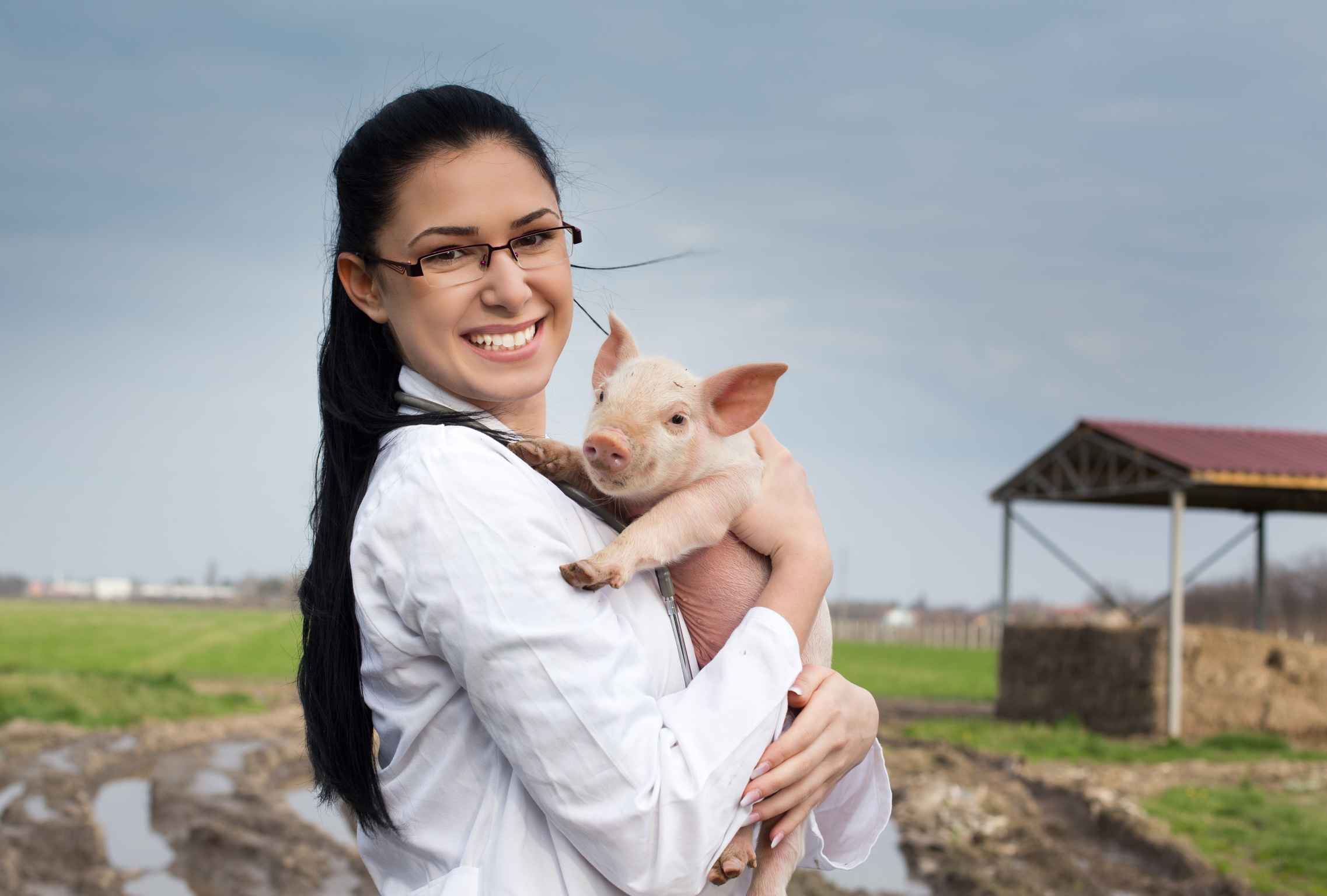
The main objective of aWISH is to develop and offer the capacity to evaluate and improve the welfare of meat-producing livestock throughout Europe via automated monitoring of animal-based welfare indicators at the slaughterhouse in order to give feedback and advice on best practices to those responsible for the various stages of production (farmer, catching team, transporter, slaughterhouse). This approach will be developed and evaluated in close collaboration with all actors involved, from primary producers up to policy makers and citizens.
Create awareness and engagement of the multi-actor community, via a participative approach with all stakeholders involved, and the communication and dissemination of the project results via multiple routes, in order to maximise the impact and exploitation of the results.
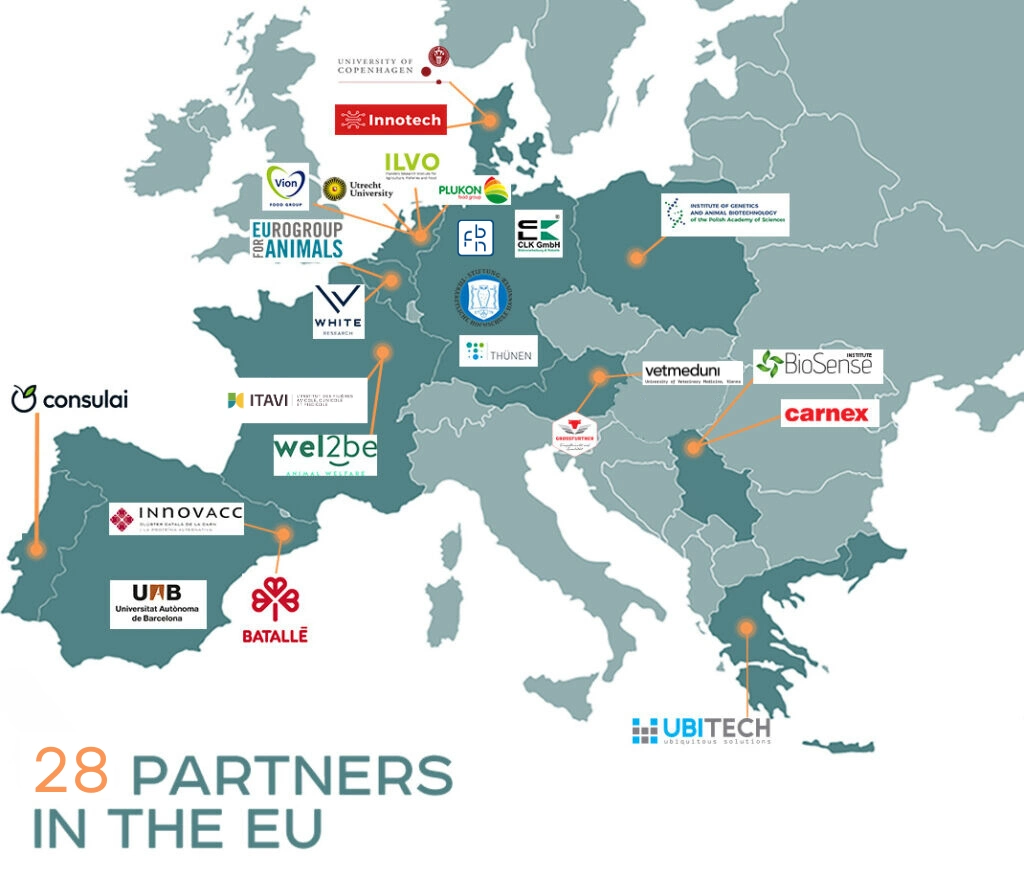
This project will build the capacity to improve farm AW at large scale level as effectively and efficiently as possible. This aspiration is reflected in the focus on broilers and pigs, and in the methodological approach. The key concept of aWISH is to produce the following main results:
(1) AW data: broiler and pig AWI measured with automated technologies at the slaughterhouse, routine and existing data sources; with guidance on what to measure and how bundled in an AWI Catalogue;
(2) aWISH data platform and feedback tool: a centralized data platform that generates feedback and benchmarking visualisations for the various actors in the production chain;
(3) Integrated animal welfare assessment: based on the collected data, methodologies for aggregated AW assessment at farm, chain, regional / national level are developed and a spontaneous intervention study will evaluate the impact of the entire feedback loop on AW;
(4) Guidance on best practices (BPs) incl. impact assessment: guidelines for BPs to improve AW (BPGs), incl. results of impact assessment on environmental and socio-economic level of these BPs;
(5) Supporting mechanisms: stakeholder engagement incl. expert panel, lean multi-actor approach, piloting activities, and a multi-dimensional impact assessment of proposed BPs (AW, socio-economic and environmental assessment).
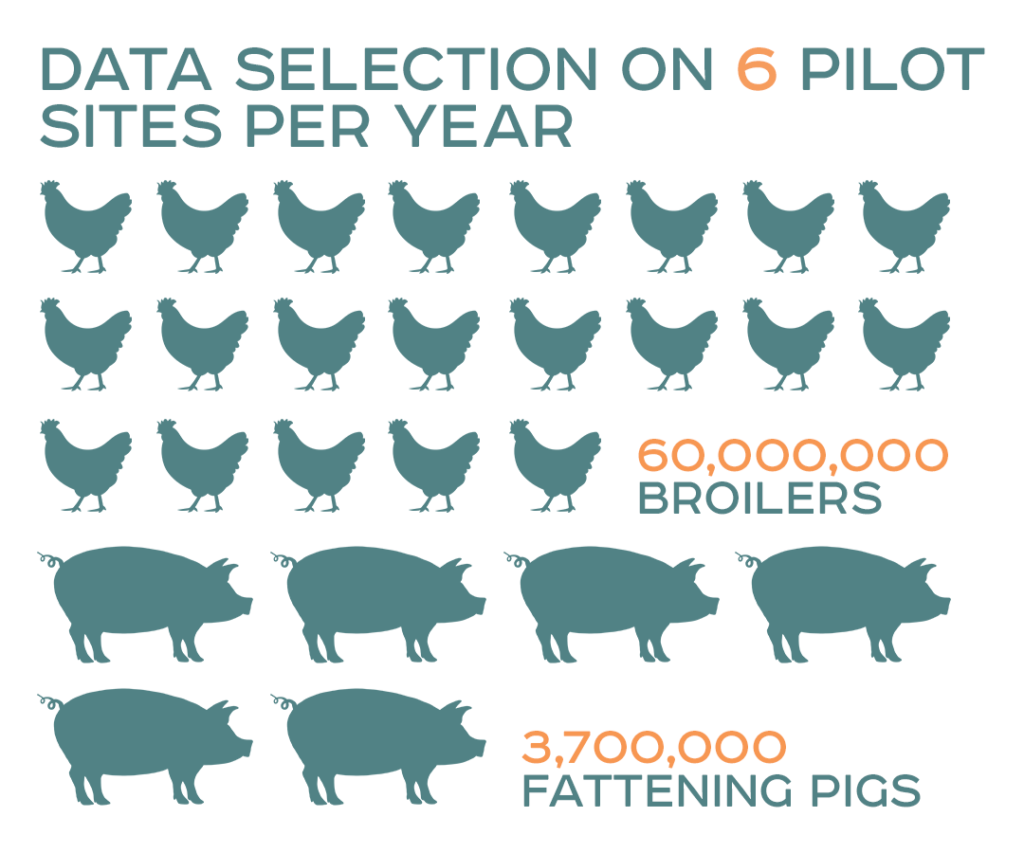
The core of the project is formed by 6 Pilots, which are:

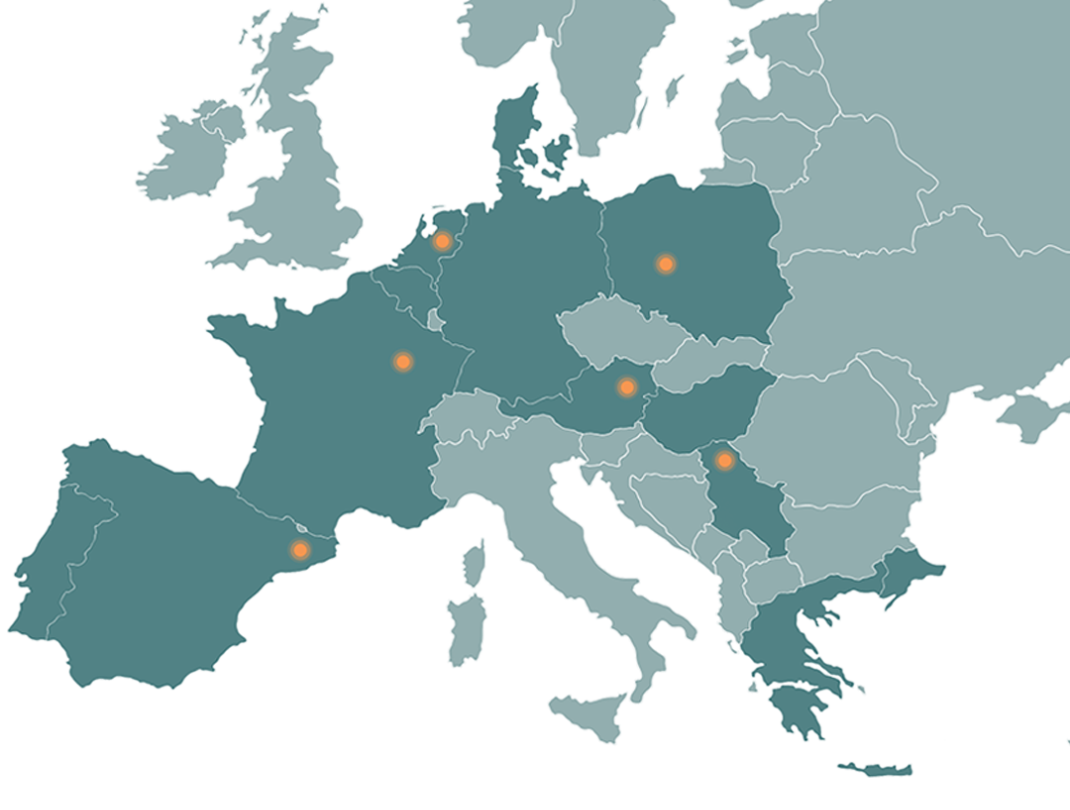
To interact with stakeholders (from farm to fork) and ensure the communication, dissemination and exploitation of the project results. Design and implement a detailed Communication, Dissemination, and Exploitation (CD&E) plan.
To develop an animal welfare indicators (AWI) catalogue to assess the welfare of fattening pigs and broilers: including indicators validated to assess specific problems arising in the various AW domains, covering all stages of the production cycle, i.e., on farm rearing, loading, transport, and slaughter, that are routinely recorded, or measurable at the farm or slaughterhouse by (almost: TRL≥8) available technologies.
The results of WP2 will flow directly into WP3 and WP4; practical experiences from the pilots in WP3 and the AW assessment and improvement in WP4 will flow back to WP2 for further updates of the AWI catalogue. WP2 works closely with T5.5 for consultation of stakeholders and expert panel for T2.2 and T2.3.
WP3 will organize six pilots, i.e. chains of business operators across EU where there will be novel technology development and large-scale data collection for measuring AW and socio-economic and environmental impacts.
WP3 will facilitate the entire journey of the pilot sites from conceptualization of the plans through assistance in implementation and following up on sites’ results.
WP3 will:
To develop the tools and recommendations for AW assessment and improvement, through the development of a feedback and benchmarking tool for business operators (monitoring), BPGs (improving), and assessing the impact of certain practices on AW.
To assess the socio-economic and environmental impact of certain AW improvement strategies to provide a systemic overview of impacts (together with AW impact from WP4), and to identify incentives and barriers for adoption in order to enlarge the impact of the project results:
Efficient and pro-active project management and coordination
Enter your name and email below and hit the subscribe button in order to keep up with the latest project news
Before we dig in we would like to know a little more about you. Group that describes you the best is:
